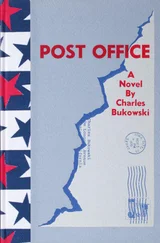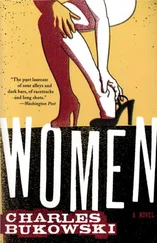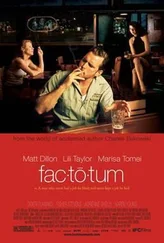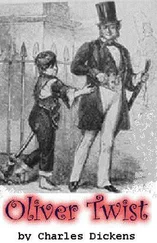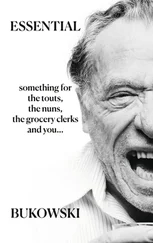I want Mama, she says.
The hope has been that each time Alice tells her daughter Mommy is in your heart. You are in Mommy’s heart, Doe absorbs these words, they are lodged in her, somewhere.
Oliver tells his daughter to take a deep breath. He tells her to feel the warm syrup of Mommy’s love spreading through her. He tells Doe to take another breath and start with the top of her head, now down into her forehead, the syrup of Mommy’s love spreading behind her eyes.
The girl tries. Her lids open now. The whites of her eyes are large and liquid. Wide hazel irises focus on him. “Why can’t I go to Mommy?
“I know Mommy is in the sky,” she says.
Her voice is light, underdeveloped, committed. “We can take a plane.”
He allows himself the time to blink, composing himself.
“The sky is so very big,” he answers.
She is undeterred, promising: “I would search every cloud.”
BUT THE DAILY grit of responsibilities took back over, their self-contained, hermetic little bubble resealing. Alice made sure she was on the phone first thing to schedule or confirm her follow-ups with Eisenstatt (Friday, the following Tuesday). She called nurses with questions about medicines, pharmacies to ask about dosages. She eventually got off the phone and into her day, usually with simple arm rotations and stretches, a basic tai chi routine if she was up to it. Then vitamin supplements, including one of Sparrow’s warmed liquid packages of special Eastern herbs and blends. (It was supposed to fill Alice with vitality, but tasted like hot barf.) She might attempt a cursory bite of breakfast. She did her best to feed Doe spoonfuls of apple mush, made sure to clean her face with a warm wet cloth, even unhooked the baby from the high chair and brought her to the floor and let Doe use her pajamaed legs — along with the wooden sewing table leg — as leverage, the child still not yet walking, but happily in that place where she was trying to stand and move around. Alice still moved fairly well herself, although she had to be shrewd about just how much back-and-forth she could handle. Hot flashes intruded, six or seven a day, the most ridiculous side effect. She was freezing all the time and then — out of nowhere — felt her body flushing with fire? Alice compensated as best she could, with layers of ice compresses, occupying her mind, typing notes to herself on the cute new gray PowerBook Oliver had bought her, sometimes just running her hand over the trackball, enjoying its smoothness, the arrow cursor corresponding with zips and zags across the screen. She called friends, though conversations had to stay short. And Oliver helped on this front, not so much eavesdropping as checking in, he claimed, sussing out who she was talking with and how things were going. Alice could be overly generous, once even having some kind of counseling session with this weird guy she’d met in the hospital hallway, so Oliver had to keep the reins tight, especially considering how many friends wanted to be in touch with her. If the phone seemed slack to her ear, and Alice wasn’t answering so much, and didn’t seem engaged, Oliver would lean into the cordless and apologize as best he could. He’d explain she needed a break.
Writing thank-you notes also drained her. Even leafing through compact discs was a slog. On the plus side, Alice didn’t mourn being done with changing Morrisey’s litter (a corollary existed between proximity to cat litter and patients coming out of remission). Nor did she spend huge amounts of time bemoaning the loss of the private rituals involved with using a hand razor to shave her legs (the risk of bleeding out was too high; she’d have to make do with an electric razor). Her time went for more important matters, each day, all these wonderful friends, arriving into their hermetic and low-lit bubble: Susannah and Suzie and Sue, Christina, Jana, Julie, Karen, Mary Beth, Jess, Sarah Jay and her husband, Isidro, Marc and Marie, Crystal, Jynne, Fiona, Alison and Cindy, Sean and Daphne (with their little ones, Owen and Mira, in tow), and David, and Matt, Patty and Josh: core loved ones who’d been invited or volunteered, not just signing up for Tilda’s schedule of visitations, but adhering to the crazy thing, never complaining about getting the required flu vaccine shot (single dose only, no clusters, mists, or live vaccines); who clearly understood they couldn’t come up if suffering from the slightest cold, or if they’d recently been ill, or even recently had been hanging around someone sick. Sitting next to Alice at her sewing table; reclining on the couch beside her; knitting a scarf and talking about patterns; distracting and entertaining and charming her; providing opinions when she asked for them; volunteering thoughts when she did not; trying to hide any somber or worried looks, or not at all hiding their concern; getting philosophical and deep with her while joining in and doing those weird arm stretches; rubbing moisturizer into her skin; refilling that water cup; taking her into their confidence; idly gossiping; coming into the realization that she’d been sitting in that chair this long because she did not have the gas to get up and move — all of this while Alice slyly hustled them at pinochle. In this manner her days passed, divided into small portions of pleasant visits, right up until she needed a nap (a happening that, with any luck, coincided with Doe’s sleep schedule), at which point most visitors offered to run errands, take the baby on a little adventure, do laundry, or perhaps didn’t get the hint it was time to go, but instead sat and watched her sleeping body, taking in the enormity, just what was happening to this hollowed woman.
And her more mercurial friends — Golzi, Debb, and Annaka — the lightning bolt wild-childs who were allergic to plans, who weren’t the type to sign up for, let alone adhere to, someone else’s spreadsheet, and besides were busy getting fall lines ready for Fashion Week: calling, out of nowhere, asking if it was okay, zipping up with containers of freshly cooked high-protein food that met all of Alice’s dietary standards, or maybe, since they didn’t have the extra time, these were the ones who paid some Village restaurateur to run over a three-star meal. And the dear friend from her high school days who volunteered to come in from out of state (just for a few days, to hang out, run errands, take Doe to Washington Square, whatever Alice needed). And the guys from Oliver’s grad school years, they tried, too, even though they hadn’t been around that many kids and were basically scared of babies, and also had little idea how to cook, clean, or do anything practical. People came, they did what they could, whatever that may have been: hauling over loads of processed deli food that Alice couldn’t eat, bottles of very good wine she was no longer allowed to ingest, baggies of hydroponic that whips and Rottweilers could not keep from her lips. They shot the breeze about television shows, they talked about nothing, enthusiastic and positive in a manner that did not begin to hide their worry, wanting to convey their goodwill, wanting so hard.
It melted Alice, even as a small seed inside couldn’t help feeling resentful. All these people got to feel a little better about themselves, and feel sorry for her, and then leave and go on with their normal lives.
She’d castigate herself for her thoughts. Joke that her predicament wasn’t so bad. She got to sit around and listen to music. She got to talk with these astonishing people. She got to nap and knit. Gratitude made it easier to forgive the few friends who were too freaked to visit. The ones like Winnie, who flaked and forgot and didn’t show up for their scheduled day, did it once or twice, burned out, vanished.
Читать дальше


